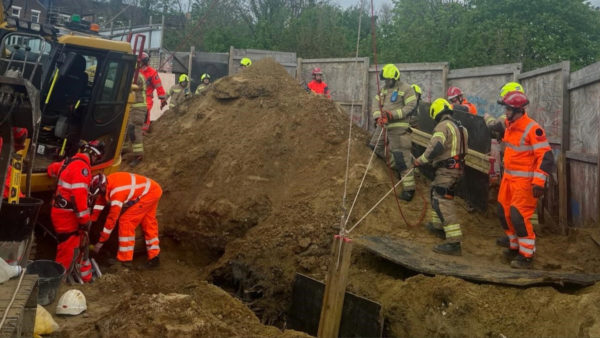
The Construction Leadership Council (CLC) has published a new framework that sets out the construction industry’s targets for carbon reduction, as well as a series of metrics to show how progress is being made.
The CO2nstruct Zero Performance Framework has been developed with the help of more than 2,500 comments received from industry. The commitments map to the nine priorities for carbon reduction outlined by the CLC in March 2021.
The headline commitments are:
- 78% of diesel plants to be eliminated from construction sites by 2035
- Close the productivity gap between construction and economy average output per worker by 2035
- From 2025, planning applications from the sector must connect to public/active transport and include EV charging where parking is provided
- Working with government to deliver retrofitting to 27 million homes by 2040
- From 2025, all new buildings will be designed with low carbon heating solutions
- From 2025, new homes and buildings will minimise energy demand and reduce emissions in operation by 75% (dwellings) and at least 27% (commercial buildings) compared to current standards
- Every person buying from the sector (business or member of the public) will be provided with carbon data by 2030 to make informed lower carbon choices
- From 2022, all clients will be given the chance to become net zero by offering alternative net zero design options to clients, even if not scoped
- By 2035 construction product emissions will be reduced by 66% from 2018
- 1,500 of the sector’s businesses and clients will sign up to a measurable carbon reduction plan (including Race to Zero, Science-based Targets or Climate Hub) by 2025
Beneath each of these headline commitments are a series of metrics termed ‘measures of success’, these will be used by the CLC in three ways:
- To report the sector’s progress on net zero to government, including to provide evidence of where government intervention could accelerate or is essential to enable the sector’s net zero commitments
- To keep the industry informed on progress and areas where further effort is required
- By the CO2nstruct Zero Programme Board as it seeks to deliver the industry-wide change programme to deliver net zero
Details of each measure are available on the Construction Leadership Council’s CO2nstruct Zero web hub. Data will be gathered on a quarterly basis and published as an industry carbon ‘dashboard’. The first update is due to take place in autumn 2021.
The CLC has also published a suite of aligned metrics to support businesses and projects to understand and set in place their own plans to meet net zero.
Construction minister Anne-Marie Trevelyan said: “The Performance Framework provides government and industry with a sector-level dashboard on progress towards net zero, aimed at enabling businesses to action progress and encouraging those outside the sector to take the key steps on the broader journey to net zero.
“It’s important that the sector holds itself to account for the commitments it has made; the Performance Framework will enable the industry to do this, reporting progress on a quarterly basis, building on existing publicly available data.”
Construction Leadership Council co-chair Andy Mitchell said: “We are seeing huge demand from across the sector to push forward towards net zero, and this has been reflected in the level of consultation feedback we received when we tested these metrics with industry. We can have confidence that these measures will help guide us towards a lower carbon future, and I look forward to seeing progress.”
Comments
Comments are closed.










Until the “science” proves the link between CO2 levels and global temperatures or a changing climate, this is just a Green Tax via the back door. The Construction Lackey Council should ask for the scientific proof not just be a government nodding dog.